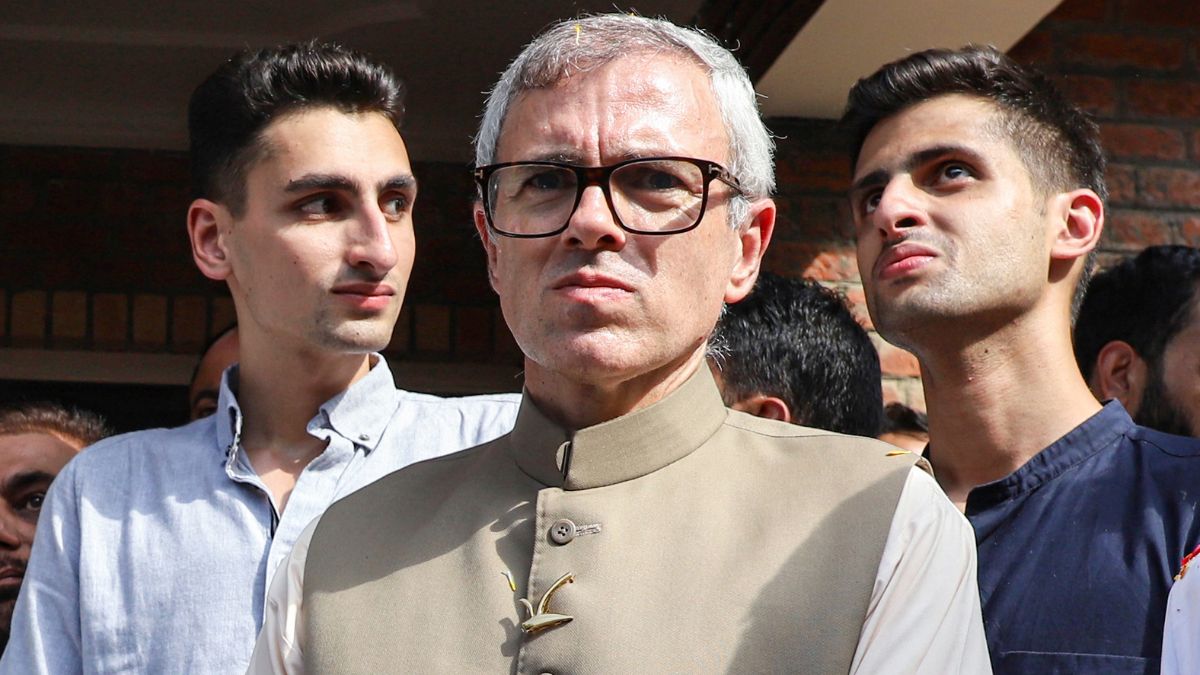Omar Abdullah, the chief of the Nationwide Convention (NC), has reignited the contentious difficulty of Afzal Guru’s execution, claiming that it served no objective and that his authorities, had it been concerned, would have withheld its approval. His assertion, delivered weeks forward of the Jammu and Kashmir (J-Okay) Meeting elections, is prone to gas a fierce debate on the topic and lift essential questions on political opportunism, judicial processes, and the long-standing battle within the area.
Omar Abdullah’s Declare and its Potential Implications
Omar Abdullah’s assertion that his authorities wouldn’t have granted state approval for Afzal Guru’s execution is a major assertion. This declare holds political weight, because it challenges the prevailing narrative surrounding Guru’s hanging and locations the NC, which is contesting the upcoming elections, in a definite place. His assertion raises a number of key factors:
Reframing the Narrative:
By stating that his authorities would have opposed the execution, Omar Abdullah makes an attempt to recast the narrative surrounding Afzal Guru. He seeks to place the NC because the social gathering that champions Kashmiri rights and rejects capital punishment in delicate conditions. This method would possibly resonate with some voters, notably these with grievances towards the alleged “oppression” confronted by Kashmiris.
Emphasizing Regional Autonomy:
Omar Abdullah’s declare additionally reinforces the NC’s stand on the necessity for regional autonomy and restricted state management over judicial processes. By highlighting the absence of state authorities involvement within the execution, he implicitly advocates for better Kashmiri autonomy, which could attraction to those that imagine in self-determination and the area’s historic identification.
Election-Oriented Technique:
With the upcoming Meeting elections, the NC is actively engaged in political maneuvering. The timing of Omar Abdullah’s assertion suggests a calculated transfer geared toward garnering assist from sections of the Kashmiri inhabitants who is perhaps sympathetic to his place on Afzal Guru’s execution.
The Afzal Guru Controversy
Afzal Guru’s case has been a deeply divisive one, with sturdy opinions expressed on each side. Whereas many understand his execution as justified for his position within the 2001 Parliament terror assault, others argue that the trial course of was flawed and that his execution did little to resolve the continuing battle within the area. The controversy surrounding Guru’s hanging displays a posh interaction of political ideologies, societal prejudices, and judicial procedures.
Public Opinion Divide:
Afzal Guru’s execution sparked widespread debate and controversy in India. Whereas a good portion of the inhabitants felt that the loss of life penalty was justified because of the gravity of the crime, others questioned the equity of the trial and argued towards the usage of capital punishment in any circumstances. This divide in public opinion has continued to be a defining function of the controversy.
Political Exploitation:
The Afzal Guru case has been utilized as a political instrument by varied teams, together with separatist actions, right-wing organizations, and political events. Every faction has selectively targeted on facets of the case that align with their ideological agenda, typically ignoring nuances and making a polarized public discourse.
Issues over Judicial Equity:
There have been longstanding issues relating to the judicial course of in Afzal Guru’s case. These issues vary from allegations of biased proceedings to questions concerning the adequacy of proof introduced towards him. The lingering questions surrounding the trial contribute to the persistent controversy surrounding his conviction and execution.
The Way forward for Jammu and Kashmir
The Afzal Guru controversy underscores the challenges confronted by Jammu and Kashmir because it navigates its approach in the direction of a brand new political order. The upcoming elections characterize a important juncture within the area’s journey in the direction of reconciliation, peace, and lasting stability. The result of the elections can have a major influence on the area’s future.
Political Uncertainty and Instability:
The area is dealing with deep political divisions and a lingering sense of instability. The controversy surrounding Afzal Guru additional exacerbates these tensions, because it highlights the underlying ideological variations and societal anxieties that persist. This uncertainty might result in political instability and hinder efforts to deal with the basis causes of the battle.
Balancing Safety and Democracy:
The J-Okay authorities faces the problem of balancing safety issues with the necessity to uphold democratic rules. The area’s unstable scenario requires strong safety measures, however these have to be applied in a way that respects human rights and fosters a local weather of belief. Putting a steadiness between these conflicting priorities is crucial for fostering peace and stability.
Reconciling the Previous, Constructing the Future:
The legacy of the Afzal Guru case, together with different conflicts, serves as a continuing reminder of the area’s turbulent previous. Resolving these conflicts and shifting ahead requires a dedication to reconciliation, understanding, and inclusive dialogue. The J-Okay authorities and all stakeholders should actively work in the direction of therapeutic the injuries of the previous and forging a future the place all communities can reside collectively peacefully and with mutual respect.
Takeaway Factors
- Omar Abdullah’s assertion relating to Afzal Guru’s execution has stirred a political debate, elevating issues about regional autonomy, political opportunism, and the complexities of the Kashmir battle.
- The controversy surrounding Guru’s hanging displays the deep divisions and ongoing battle in Jammu and Kashmir, with differing opinions on justice, truthful trials, and the position of capital punishment.
- The upcoming J-Okay Meeting elections current a important alternative to deal with the area’s political instability, steadiness safety issues with democratic rules, and search reconciliation by dialogue and understanding.
- The enduring legacy of the Afzal Guru case underlines the pressing want for therapeutic the injuries of the previous and constructing a future characterised by peace, justice, and mutual respect amongst all communities.




